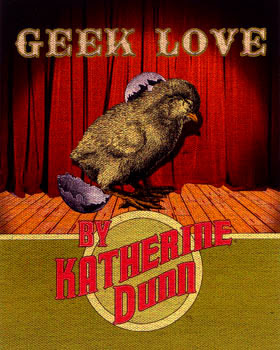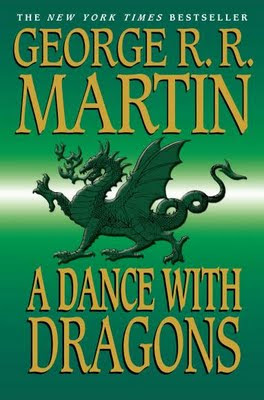Shakespeare's Sister
 Long time since I've posted a song. I heard this one at a lunch with a friend and then I dug up this rare video of the last performance of Shakespeare's Sister before they split up. Enjoy!
Long time since I've posted a song. I heard this one at a lunch with a friend and then I dug up this rare video of the last performance of Shakespeare's Sister before they split up. Enjoy!Here is the original video of the song:
 Long time since I've posted a song. I heard this one at a lunch with a friend and then I dug up this rare video of the last performance of Shakespeare's Sister before they split up. Enjoy!
Long time since I've posted a song. I heard this one at a lunch with a friend and then I dug up this rare video of the last performance of Shakespeare's Sister before they split up. Enjoy!

 Luckily for me, some chess videos are for beginners like me. Here is one from OnlineChessLessons, describing a simple, clear opening called The Stonewall Attack. After watching the video I played a game with my trusted Nokia phone and managed to create a game starting with this opening. I then analysed it using chess engines Houdini and Rybka and annotated it manually. Check it out, including the variations.
Luckily for me, some chess videos are for beginners like me. Here is one from OnlineChessLessons, describing a simple, clear opening called The Stonewall Attack. After watching the video I played a game with my trusted Nokia phone and managed to create a game starting with this opening. I then analysed it using chess engines Houdini and Rybka and annotated it manually. Check it out, including the variations.
 Geek Love is another title that mislead me. Geek, in this book, refers to the original definition of the word "A carnival performer who does wild or disgusting acts" and not a cool lovable geek as myself. The subject is "controversial": the life of an albino hunchbacked dwarf woman as a member of a carnival family.
Geek Love is another title that mislead me. Geek, in this book, refers to the original definition of the word "A carnival performer who does wild or disgusting acts" and not a cool lovable geek as myself. The subject is "controversial": the life of an albino hunchbacked dwarf woman as a member of a carnival family.
 The Sparrow is, in my opinion, a good example of politics in literature, as it won several prestigious prizes, but is, in my own view, slightly above average. To quickly summarize the book, it's a Jesuit meets New World story, only the plot is set in the future and the new world is another planet.
The Sparrow is, in my opinion, a good example of politics in literature, as it won several prestigious prizes, but is, in my own view, slightly above average. To quickly summarize the book, it's a Jesuit meets New World story, only the plot is set in the future and the new world is another planet.
When I was a child I watched with huge eyes movies like Hackers, enjoying the shenanigans of computer rebels fighting the stupid law enforcement and the "evil" hackers. Of course, there was also Angelina Jolie. Even then I knew that my pleasure was a guilty one: no way could the police be that stupid, no way it would be that easy to penetrate all kinds of systems and produce effects so flashy. A while after that I watched Skeet Ulrich in the movie Operation Takedown, which was a more realistic hacker movie (and one I think Skeet did a great job in). It depicted how Kevin Mitnick has been apprehended by the authorities. I really loved that movie, although it had a lot of eye rolling moments.
Fast forward to now, reading Ghost in the Wires, Kevin Mitnick's book about himself, practically a hacking autobiography, and I loved this book every bit as much as I liked those movies as a kid. Not only I couldn't leave the book out of my hands once I started reading it, but was shocked to see that reality is not that far away from what was depicted in hacking movies. It was also interesting to read how the script of Operation Takedown came to be, which Kevin considers defamatory and mostly untrue.
Long story short, Mitnick is a smart kid with a great memory, an absent father and no real friends. He starts dabbling with radio and telephones and manages to get access to phone systems way before computers where personal or connected to each other. He's a kid, though, and he gets caught a few times. Nobody seems to understand he does it just for the fun of it and he can't seem to understand why nobody gets him. In the end, pushed by the desire to challenge himself, but also by authorities baiting him all the time, he becomes a life long hacker and eventually gets caught.
A shocking part of the book is how easy it is to penetrate any system, not by whatever technical wizardry, but by simply tricking people into giving you information and access. Called "social engineering" it was Mitnick's strongest point and at several times in the book, when the technology would not allow him to enter one system or another, he would just abandon the tech stuff and go with tricking people. Already having knowledge on how to manipulate phone systems made that a lot easier, as well.
Another, less shocking, but utterly disappointing part is about authorities. Just as they are now about file sharing and whatever "crisis" they are in, law enforcement agencies are basing their entire existence on pure power of coercion, ignoring the rules that they themselves are enforcing and being motivated only by keeping that power in their hands. Technical morons, they only seem to be getting into the action when their pride is affected. In this book Kevin Mitnick dances around security personnel, local cops, FBI, NSA several steps ahead of them, but they only seem to really mind when newspapers start publishing articles that makes law enforcement look bad. And once they have him, caught only with the help of other hackers, they are using all the dirty tricks in the book to bring Mitnick to his knees. Nothing has changed from then to now, just look at cases like Gary McKinnon's. Intimidation is a bully's greatest strength. That's sad.
I would have to say that the most unexpected thing was the tone of the book, which is almost exuberant. Mitnick has not become a bitter and paranoid man after countless personal betrayals and authority abuse and he is not angry at all. If anything, the guy is happy to have lived as the lead actor in the "Myth of Kevin Mitnick", which has grown way bigger than the real person. There is a scene when he gets outside of a building and there are hundreds of fans there, shouting, and he looks behind to see if there is a celebrity around.
Bottom line: this is a book you can't miss. It is easy to read to the point of instantly addictive, it is well written with enough juicy technical details to keep one interested and, most of all, makes you feel good, even in the horrible moments of his detention. It makes one wonder, did Mitnick socially engineer himself into remaining an open and cool guy in the face of adversity? Or is it he had this strength all along and that is his most powerful "magic"?
 I've always felt that a lot of movies and books lack realism, that when the hero survives and gets the girl, while the villains get their rightful punishment the whole story becomes null and void. Therefore I believed that the opposite of this - a character centric plot, a realistic story, unexpected outcomes - would spell a good story and wonderful books/movies. Such is the tale in A Song of Ice and Fire, the seven (until now) book saga that I am currently reading, in which A Dance with Dragons is the fifth book.
I've always felt that a lot of movies and books lack realism, that when the hero survives and gets the girl, while the villains get their rightful punishment the whole story becomes null and void. Therefore I believed that the opposite of this - a character centric plot, a realistic story, unexpected outcomes - would spell a good story and wonderful books/movies. Such is the tale in A Song of Ice and Fire, the seven (until now) book saga that I am currently reading, in which A Dance with Dragons is the fifth book. Kary Mullis is a chemist who, in 1983, invented Polimerase Chain Reaction, something that would revolutionize DNA analysis in terms of increased speed. He won the 1993 Nobel prize for that. He also is a controversial scientist who claims possible alien encounters and telepathy, denies global warming as an effect of human intervention, is skeptic about HIV causing AIDS and generally believes that most scientists are inventing reasons to get funded rather than doing anything scientific. He also admits smoking pot, taking LSD and generally experimenting with any mind altering chemical that he can make. He likes women and some of them like him. That is what this book is all about, a sort of "I am Kary Mullis, hear me roar!".
Kary Mullis is a chemist who, in 1983, invented Polimerase Chain Reaction, something that would revolutionize DNA analysis in terms of increased speed. He won the 1993 Nobel prize for that. He also is a controversial scientist who claims possible alien encounters and telepathy, denies global warming as an effect of human intervention, is skeptic about HIV causing AIDS and generally believes that most scientists are inventing reasons to get funded rather than doing anything scientific. He also admits smoking pot, taking LSD and generally experimenting with any mind altering chemical that he can make. He likes women and some of them like him. That is what this book is all about, a sort of "I am Kary Mullis, hear me roar!". The Art of Learning is a wonderful book, both concise and useful, with tremendous sources for inspiration at every level. It also has more meaning to me, as it started with an investigation in the life of Josh Waitzkin, prompted by my renewed attention to chess.
The Art of Learning is a wonderful book, both concise and useful, with tremendous sources for inspiration at every level. It also has more meaning to me, as it started with an investigation in the life of Josh Waitzkin, prompted by my renewed attention to chess. When I was a kid, my grandfather taught me to play chess. I did play with him, with my father, with an aunt, with the game Chessmaster on my 386 computer. I was feeling very good at it at the time, even if no one was really teaching me the theory behind the game. Then I suddenly stopped, mainly for lack of people to play with.
When I was a kid, my grandfather taught me to play chess. I did play with him, with my father, with an aunt, with the game Chessmaster on my 386 computer. I was feeling very good at it at the time, even if no one was really teaching me the theory behind the game. Then I suddenly stopped, mainly for lack of people to play with.A Bust to the King's Gambit, allegedly annoyed by Boris Spassky who defeated him while using this opening. He publishes this article in the American Chess Quarterly, edited by one Larry Evans, also an international chess master. In 1963, Bobby Fischer is playing against Larry Evans, in the U.S. Chess Championship. He starts with the King's Gambit and wins. The moral of the story here, for me, was that chess is something that explodes off the board and into the real life. Competitive chess players mold their game strategy before they start the game, by preparing against the opponent as warriors would do before a battle, by analysing the flaws in previous games, in character, in personal history. In just three moves, Fischer told Evans "I am starting with an inferior opening. That is just how much I think of you!", striking a subtle blow even before starting to play.
 What a beautiful anime film this was. I rated Summer Wars a full 10 on Imdb and I just felt the need to also post my opinion on the blog. Imagine Myiakazi combined with Denou Coil and you will get a glimpse of what Summer Wars is. Brilliant!
What a beautiful anime film this was. I rated Summer Wars a full 10 on Imdb and I just felt the need to also post my opinion on the blog. Imagine Myiakazi combined with Denou Coil and you will get a glimpse of what Summer Wars is. Brilliant!  The Sword of Uruk is the continuation of The Tower of Druaga - The Aegis of Uruk, itself a spawn of the The Tower of Druaga arcade game by Namco. I must confess I have not watched the first part before venturing to see the second, but as the story unfolded, it was pretty clear what had transpired before. The problem, thus, was not that I didn't "get it".
The Sword of Uruk is the continuation of The Tower of Druaga - The Aegis of Uruk, itself a spawn of the The Tower of Druaga arcade game by Namco. I must confess I have not watched the first part before venturing to see the second, but as the story unfolded, it was pretty clear what had transpired before. The problem, thus, was not that I didn't "get it".